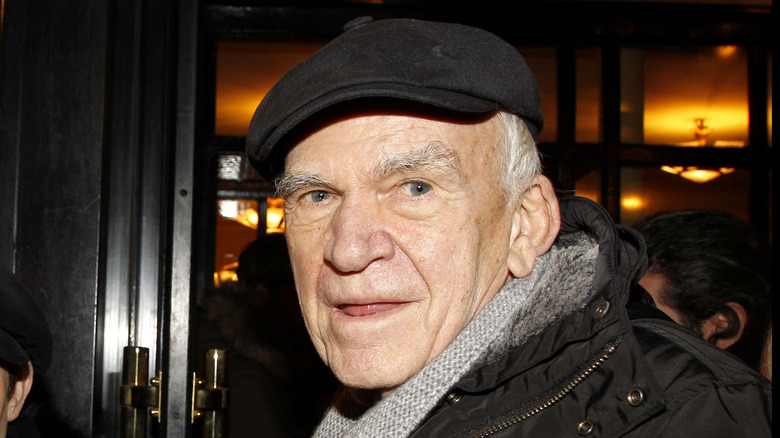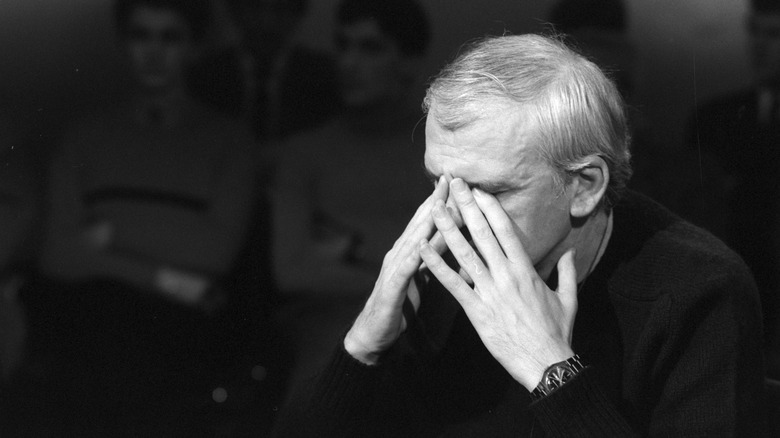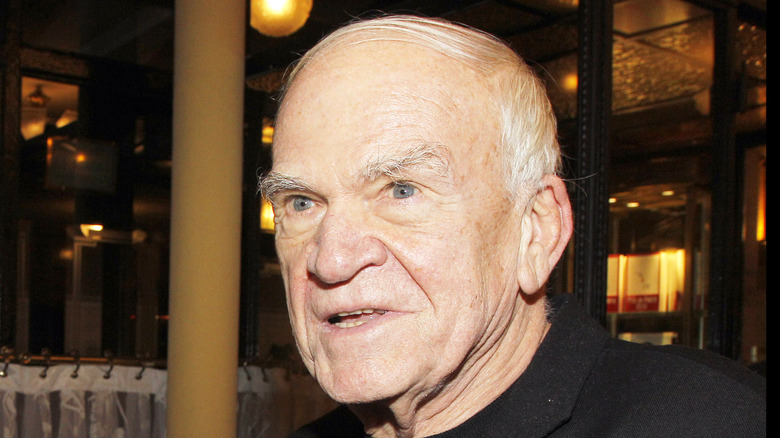The Reason Milan Kundera Was Given Back His Citizenship After 40 Years
On Wednesday, July 12, 2023, it was announced that Milan Kundera, the celebrated French-Czech writer of works including "The Unbearable Lightness of Being," had died at the age of 94. Kundera, who was born in the town of Brno, then Czechoslovakia, on April 1, 1929, began his career as a novelist in 1967 with the publication in Czech of "The Joke." He was to become a literary superstar, who achieved international fame when his most famous novel was published in 1984. His star rose considerably higher when "The Unbearable Lightness of Being" was adapted into a successful Hollywood film starring Daniel Day-Lewis and Juliette Binoche. Kundera continued to write into old age, with his final work, "The Festival of Insignificance," being published in 2014. Attracting many awards over the course of his career, Kundera was often tipped to become the recipient of the Nobel Prize in Literature, according to The Guardian.
But perhaps the greatest honor in the author's life was not literary at all. Arguably, it was the fact that in 2019, the Czech government restored to Kundera his citizenship, which had been taken from him by the communist government four decades earlier. The writer's relationship with the government in question had started well — he joined the Communist Party of Czechoslovakia as a teenager, shortly after its formation in 1948 — but after a few years of political friction he was stripped of membership, and, later, his Czech identity.
A writer in exile
In 1975, Milan Kundera, who had long lost patience with the Communist Party of Czechoslovakia, decided to leave his home country for good. With his wife and children, he relocated to France, the country he would largely remain for the rest of his life even after his writing had become world famous. In 1979, the Communist Party of Czechoslovakia, in reaction to Kundera's scathing anti-communist book "The Book of Laughter and Forgetting," officially stripped the writer of his citizenship.
Kundera meditated on his national identity in an interview given to The New York Times in 1984, around the time "The Unbearable Lightness of Being" was becoming an international bestseller. "Do I consider my life in France as a replacement, a substitute life, and not a real life? Do I say to myself: 'Your real life is in Czechoslovakia, among your old countrymen'?" he asked. "Or do I accept my life in France — here where I really am — as my real life and try to live it fully?" Kundera's decision to recast himself as a citizen of his adopted home went deep. In his later years, the writer abandoned his Czech mother tongue, composing his final novels in French, and he argued that his works ought to be filed under the "French Fiction" section in bookstores (per The Guardian).
A late but welcome return
Milan Kundera would spend the rest of his life primarily in France, but would nevertheless return to his home country of his birth every so often. It is reported that, despite his fame, Kundera managed to make his visits to Central Europe "incognito" from 1996, with his presence in the country never once leaking into the newspapers, according to The Guardian.
By the mid-90s, much had changed since Kundera left for exile in France. For a start, the Velvet Revolution finally relieved Czechoslovakia of its communist government which allowed for the country to split into the Czech Republic and Slovakia, each with their own autonomous governments. And as the Communist influence on the Czech Republic continued to thaw, so too did the country's former frostiness toward its most famous literary son. In 2019, with the announcement that Kundera's citizenship had been returned, he was officially rehabilitated as a national hero.
The Czech prime minister Andrej Babiš has claimed to have invited Kundera and his wife to make an official visit to his former home country in 2018, the year before the restoration of his and his wife's citizenship, but the author, by then in his late 80s, didn't take him up on the offer (via The Guardian).


